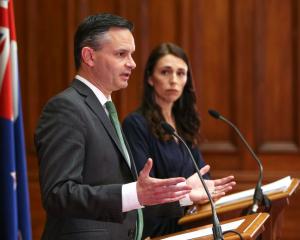
That is the view of Findex managing partner and tax specialist Scott Mason after the Labour Party’s tax policy was announced yesterday.
Labour wants to introduce a new tax rate of 39% on wages earned above $180,000 — affecting New Zealand’s top 2% of earners.
The party says its policy is forecast to bring in $550million in revenue a year.
Mr Mason said the policy was "smart politics".
He said it would bring in revenue and it targeted the 2% that had not historically been a "happy hunting ground" for votes on the left.
But Labour again missed a chance to be transformational, he said.
He said it had a chance last year to make big changes to taxes in New Zealand with a capital gains tax, but it had "backed itself into a corner" with the Prime Minister vouching never to have a CGT on her watch.
"The sound bite [of a new tax rate] will appeal ... because we all like it when someone else pays."
But the biggest issue Mr Mason raised with the policy was that it might distract businesses from creating more value in the wider economy.
He said many high-paid employees’ wages would be easily captured in the new tax take but other parts of the productive sector might now take a different view of the tax settings.
"Other elements of the productive sector, who have been ‘relaxed’ about the tax-rate settings for some time, will inevitably now start factoring tax rates into investment and structuring decisions with greater emphasis than we have seen for many years.
"This planning is legitimately utilising things like the targeted use of lower tax rates for trusts and companies, which creates distortion and distraction, which is unhealthy for NZ Inc."
Labour said its plan would protect services such as education and revenue, and that it "keeps a lid on debt".
It also introduced a freeze on fuel tax increases and committed to no new taxes for its entire next term, if elected.
The party said it would also continue working with the OECD — potentially in the form of an international agreement — to find a solution to multinationals "not paying their fair share of tax".













